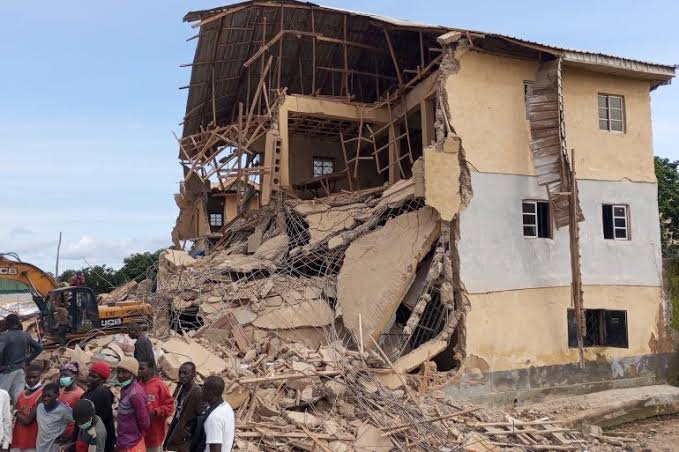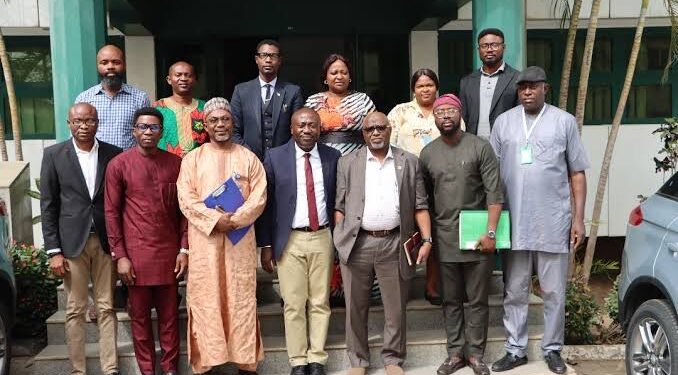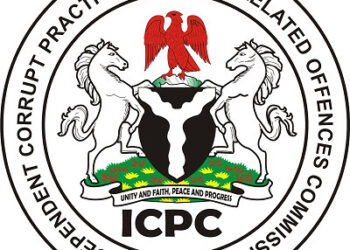According to the Nigerian Engineering Regulatory Council, the regulatory body for engineering work, 22 building collapses were recorded in Nigeria between January and July 2024.
COREN Chairman, Professor Sadiq Abubakar, disclosed this at a press conference in Abuja on Wednesday. The press conference was titled “The incessant spate of building collapse in Nigeria in recent times calls for sustainable collaboration by all stakeholders.”
Abubakar said there were at least 22 collapses between January and July 14 alone. The proportion of building collapses reported in Nigeria was led by Lagos at 27.27 percent, followed by Abuja and Anambra at 18.18 percent each.
He added that Ekiti and Plateau followed with 9.09 percent each, while Kano, Taraba and Niger accounted for 4.55 percent each.
He said, “Records show that Lagos tops the list of building collapses. In fact, from 2012 to date, over 91 buildings have collapsed in Lagos, killing over 354 people. The situation is similar in Abuja, where about 30 buildings have collapsed between 1993 and date, killing over 64 people and injuring many.
“Recently, a building collapsed near DMGS Onitsha, Anambra State on June 12th, while a school (Saints Academy), Plateau State, collapsed on July 13th, killing 22 students and injuring 134. Building collapses also occurred in Kubwa, Abuja.”

The cases are alarming, he said. According to him, stemming the trend requires careful consideration and the cooperation of all stakeholders.
He stated, “While we commiserate with victims and families, we want to commend the efforts of emergency and security services for their prompt response at the time.” According to Abubakar, the main causes of the collapse of buildings vary depending on the location. He said some buildings may collapse due to deterioration, some surveys and studies carried out over a long period of time, use of substandard building materials, and structural damage.
Other factors include illegal conversion of buildings, illegal extensions, fraudulent practices, and insufficient or lack of supervision and management, he said.
Other factors include defective foundations, failure to conduct soil/geological surveys, fraudulent and corrupt practices, etc.
Abubakar also commended the state governments concerned for setting up committees of inquiry to investigate the various incidents and to determine the immediate and subsequent causes and prevent future incidents.
He further added, “This is not the time for apportioning blame or contest of superiority within the built environment. But a time for all stakeholders to unite and proffer workable and lasting solutions, particularly in the prevention of building collapses. All professionals within the built environment have a role to play in this. In this regard, we identified and categorized many stakeholders that we will be engaging shortly.”

The President noted that the prevalence of illegal miners even in residential areas, as reported by some, poses a threat to the structural stability of buildings.
The Council has therefore called on the affected states to take urgent steps to reverse the trend, it added. It is also time to enforce compulsory insurance for some buildings under construction.
Abubakar said COREN is concerned by the countless preventable building collapses in Nigeria and the recent high number of deaths and has decided to take major steps.
He said the city council has taken steps to monitor and prevent building collapses by training and licensing inspectors to monitor technical regulations.
Abubakar added that COREN has reconstituted the Technical Regulation Monitoring Council Committee and added an enforcement role to its functions under the amended COREN Act.
He said the city council has formed ERM&E Task Force at the zonal level including Ibadan, Port Harcourt, Enugu, Kano, FCT, Gombe, and Lagos among other measures to address building collapses.




































